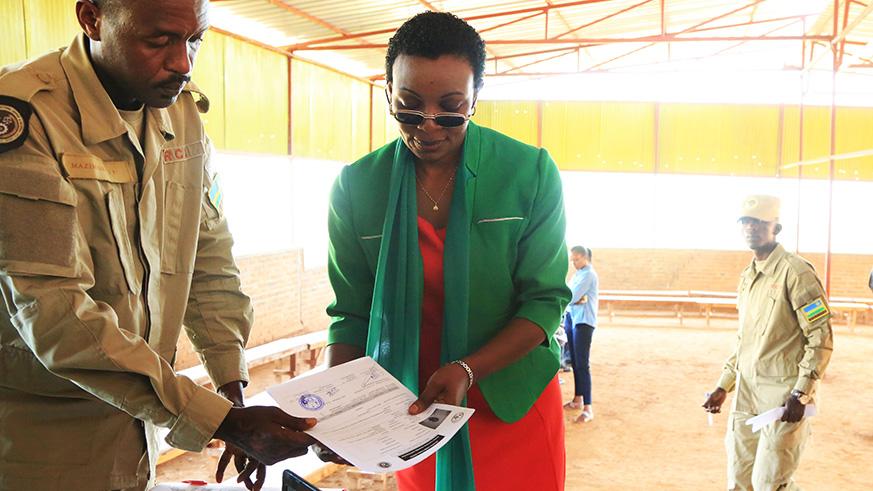

Ms. Victoire Ingabire wants peace and justice in the Great Lakes Region like everyone else, but the mechanisms she proposes to achieve the two are completely ineffectual as her utterances recently quoted in the Chatham House show.
In a blanket comment carried by the publication, she said that "A culture of impunity in some Great Lakes countries continues to be a problem”.
By picking on impunity, Ms. Ingabire thought she had found an easy credit to earn. This is because if indeed impunity was to be a culture in any country, that would be a big problem.
However, her analysis severely lacked in fact and accuracy, making it look like mere hearsay.
Let us for example take a closer look at the "impunity in some Great Lakes countries” she picked on to see if we can make sense of it.
You will agree with me that whenever Ms. Ingabire points a finger accusing governments in the region of any wrongdoing, the Kigali Administration will be first on her mind. It is in Rwanda where she tries to remain relevant in opposition politics, and so it is, even on this impunity rhetoric.
Not only would that be extremely unfair, but it would also be entirely misleading, like Ingabire herself would testify.
Eleven years ago, Ms. Ingabire was arrested after she used highly divisive and charged language at the Kigali Genocide Memorial. Here is what she said, and I quote: "I agree that there was a genocide by Hutu extremists against the Tutsis, that is the reality. The people who did this need to face justice. But there were also other crimes against humanity, including the killing of Hutus”. Bang!
In the judicial proceedings which followed, she was convicted by the court in 2012, of terrorism charges and Genocide denial.
She was sentenced to a jail term of 15 years in prison after an appeal but served for less than half before being pardoned.
Now that she is free, one wonders whether she is not beginning to take matters for granted thus confusing scenarios. If Ms. Ingabire thinks giving her mercy is impunity, she should come out clearly and say so. Otherwise in Rwanda impunity is fought with all the willpower, and no one knows it better than Ms. Ingabire.
I will point out another example close to her heart.
Back in 2011 when Ms. Ingabire was being prosecuted in court, one of the strongest of evidence against her in the terrorism part of her case, was the close ties she had with one Paul Rusesabagina. On the basis of this too, seeing that ten years later Rusebagina on his own is now battling in courts of law charges related to terrorism, surely Rwanda should not appear on Ms. Ingabire’s list of countries where impunity is a problem.
Ms. Ingabire still quietly sympathized with Rusesabagina and the cause of armed rebellion up until the time he was arrested.
All along FDU-Inkingi had believed, together with RNC of Kayumba Nyamwasa and MRCD of Rusesabagina and Twagiramungu, that FLN forces could overthrow the government in Kigali.
But after a series of catastrophic military and political setbacks on the battlefield, in diplomatic circles, and in courts of law, they have lost hope. That is why Ms. Ingabire has now quickly changed tact. She has suddenly taken up the position of championing peace talks.
Too little too late, even her own sympathizers have admitted.
Last but not least, Ms. Ingabire in the same Chatham House Publication said that the "International Tribunal Court for Rwanda was established to prosecute those responsible for crimes committed in the 1994 genocide, yet the court has only judged crimes committed against Tutsi”. Is this a point she misses or truth she ignores? The focus of the tribunal are the 1994 crimes of Genocide, which was committed against the Tutsi. It is not the tribunal’s problem that in her mind she strongly feels there was a double genocide. How else would she still demand that members of RPA are tried for a crime they helped stop – genocide?
It seems she has learnt nothing.
About the author: Ignatius Kabagambe is Head of Corporate Communications, University of Rwanda


